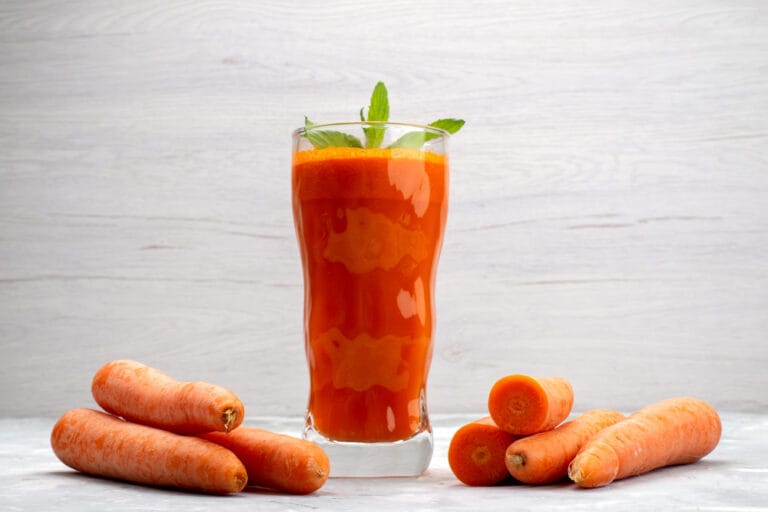FREE SHIPPING OVER $50
Heart Attack Foods? 7 ‘Healthy’ Items Secretly Clogging Your Arteries (Cardiologists Warn!)
You’re trying to eat healthy, right? You’re reading labels, choosing what seems like the better option, and maybe even swapping out old favorites for what the marketing gurus tell you is “good for you.” But what if some of those very choices, the ones you genuinely believe are supporting your heart health, are actually secretly clogging your arteries? It’s a shocking thought, but it’s a reality cardiologists warn us about.
The truth is, the world of “healthy” foods can be a minefield. Marketing often highlights a single beneficial ingredient while burying the fact that the product is loaded with hidden sugars, unhealthy fats, or excessive sodium – all major contributors to heart disease. This isn’t about blaming you; it’s about exposing the Heart Attack Foods that have cleverly disguised themselves as allies in your health journey.
Heart Attack Foods? 7 ‘Healthy’ Items Secretly Clogging Your Arteries

Here are 7 ‘healthy foods’ that often get a pass, but cardiologists warn can be problematic for your heart health if you’re not careful. For each, we’ll explain why it’s often seen as healthy, how it can silently harm your heart, and what to choose instead.
1. Flavored, Low-Fat Yogurt
- Why it’s perceived as healthy: Dairy, probiotics, low fat. Sounds great for heart health, right?
- How it secretly harms your heart: Many flavored, low-fat yogurts are absolutely loaded with added sugars to compensate for the removed fat. This sugar, particularly high-fructose corn syrup, can contribute to inflammation, high triglycerides, insulin resistance, and ultimately, plaque buildup in your arteries. The “low-fat” label often distracts from the sugar bomb within.
- What to choose instead: Opt for plain, unsweetened Greek yogurt. Add your own fresh fruit, a sprinkle of nuts or seeds, and a tiny drizzle of honey if needed.
2. Many Store-Bought Granola Bars & Packaged Granola
- Why it’s perceived as healthy: Whole grains, oats, nuts, seeds – sounds like a powerhouse of fiber and healthy fats.
- How it secretly harms your heart: The reality is that many granola bars and packaged granolas are essentially glorified candy bars. They’re often packed with added sugars (honey, maple syrup, brown rice syrup, cane sugar, etc.), unhealthy refined oils (like palm or soybean oil), and very little actual fiber or protein. This combination can lead to blood sugar spikes, inflammation, and contribute to artery clogging.
- What to choose instead: Make your own granola at home with oats, nuts, seeds, minimal sweetener, and healthy oils. For a quick snack, choose a handful of raw nuts and seeds, or an apple.
3. 100% Fruit Juice (Even “No Sugar Added”)
- Why it’s perceived as healthy: It comes from fruit, so it must be good, right? It contains vitamins!
- How it secretly harms your heart: While fruit juice contains some vitamins, it’s essentially liquid sugar. When you juice fruit, you remove most of the beneficial fiber. This means the natural sugars hit your bloodstream very quickly, similar to soda, leading to rapid blood sugar spikes. Over time, high blood sugar can damage blood vessels and contribute to atherosclerosis. The fruit’s natural sugar (fructose) in concentrated amounts can also strain the liver.
- What to choose instead: Eat whole fruit! You get all the fiber, which slows sugar absorption and provides satiety. Water, unsweetened tea, or sparkling water with a slice of lemon or lime are better hydration choices.
4. Packaged “Gluten-Free” Baked Goods & Snacks
- Why it’s perceived as healthy: Gluten-free is often associated with being healthier or lighter.
- How it secretly harms your heart: Many commercially available “gluten-free” products – like cookies, crackers, breads, and muffins – replace gluten with highly refined starches (tapioca starch, potato starch, white rice flour). To make these palatable, manufacturers often add more sugar, unhealthy fats, and sodium than their gluten-containing counterparts. This can result in a product that’s low in fiber and nutrients, high in calories, and promotes inflammation and artery clogging.
- What to choose instead: Focus on naturally gluten-free whole foods like fruits, vegetables, lean proteins, nuts, seeds, and truly whole grains like quinoa or brown rice. If you buy gluten-free products, check labels for added sugars and fats.
5. Agave Nectar & Other “Natural” Liquid Sweeteners (used excessively)
- Why it’s perceived as healthy: It’s “natural,” often marketed as a healthy alternative to sugar.
- How it secretly harms your heart: While natural, agave nectar is typically very high in fructose (often more than high-fructose corn syrup). Consuming excessive amounts of fructose can be particularly damaging to heart health. It’s metabolized primarily by the liver, and in high doses, can contribute to non-alcoholic fatty liver disease, increased LDL cholesterol, elevated triglycerides, and insulin resistance – all risk factors for clogging arteries.
- What to choose instead: Minimize all added sugars, including “natural” ones. If you need a sweetener, use small amounts of pure maple syrup, local honey, or stevia/monk fruit, but the best approach is to reduce your overall preference for sweetness.
6. Processed Plant-Based Meat Alternatives
- Why it’s perceived as healthy: Plant-based, often seen as a virtuous choice compared to red meat.
- How it secretly harms your heart: Not all plant-based foods are created equal. Many highly processed plant-based burgers, sausages, and chicken nuggets are engineered to mimic meat and can be incredibly high in sodium, unhealthy refined oils (like coconut or canola oil), and various additives. High sodium intake contributes to high blood pressure, a major risk factor for heart disease, while unhealthy fats can raise LDL cholesterol.
- What to choose instead: Opt for whole, unprocessed plant-based proteins like beans, lentils, chickpeas, tofu, tempeh, and edamame. These are naturally rich in fiber and nutrients that truly support heart health.
7. Bottled Smoothies & Juice Cleanses
- Why it’s perceived as healthy: Packed with fruits and veggies, quick, convenient.
- How it secretly harms your heart: Similar to fruit juice, many commercially bottled smoothies are massive sugar bombs with little to no fiber. They might include some fruit or veggie puree, but the sheer quantity of natural (and sometimes added) sugars in one serving can be equivalent to multiple sodas. This leads to blood sugar spikes, inflammation, and can promote fat storage around your organs, impacting heart health. Juice cleanses often share this problem and can lack essential nutrients.
- What to choose instead: Make your smoothies at home using whole fruits, plenty of leafy greens (like spinach or kale), a scoop of protein powder, and a healthy fat source (like avocado or chia seeds). Drink plenty of plain water for hydration.
Protecting Your Heart: Beyond Avoiding These “Healthy” Traps
Recognizing these foods that can secretly clog your arteries is a huge step. But true heart health is built on a foundation of broader, consistent habits.
Cardiologists and nutrition experts emphasize these principles:
- Focus on Whole, Unprocessed Foods: Build your diet around fruits, vegetables, whole grains, lean proteins, and healthy fats. These foods are naturally rich in fiber, antioxidants, and essential nutrients that protect your heart.
- Read Food Labels Diligently: Become a detective. Look beyond front-of-package claims and scrutinize the ingredients list and nutrition facts panel. Pay close attention to:
- Added Sugars: Look for “sugar,” “corn syrup,” “dextrose,” “sucrose,” “maltose,” etc. Aim for minimal to no added sugar.
- Sodium: Keep sodium intake low, especially if you have high blood pressure.
- Saturated and Trans Fats: Minimize saturated fats and avoid trans fats entirely.
- Cook at Home More: Taking control of your ingredients allows you to prepare meals free from hidden sugars, excessive sodium, and unhealthy oils.
- Practice Portion Control: Even truly healthy foods can contribute to weight gain if consumed in excess, and excess weight is a major risk factor for heart disease.
- Stay Hydrated: Drink plenty of water throughout the day.
- Embrace a Varied Diet: A wide range of plant-based foods provides a diverse array of protective compounds.
Conclusion
The journey to optimal heart health isn’t always straightforward, especially with so many unhealthy foods floating around. But by understanding that some ‘healthy’ items can be secretly clogging your arteries, you’re now empowered to make truly informed decisions.
Remember the cardiologists’ warning: your heart relies on the choices you make every single day. Ditch the deceptive foods, embrace whole and real ingredients, and commit to a lifestyle that truly nourishes your cardiovascular system.
Related Articles
- Secret Weapons Against Cholesterol: 10 Foods That Clean Your Arteries & Balance Your Levels Naturally!
- Diabetes Alert: Why Sweet Drinks Are WORSE Than Solid Sweets for Your Blood Sugar (And How to Escape!)
- Stop Wasting Leftover Rice! This Oven “Hack” Transforms It Into a Crispy, Delicious Meal (Seriously!)
- Chef’s Secret: Stop Ruining Your Roasted Veggies! The RIGHT Moment to Add Oil for Perfect Crispy Edges
- Unlock Your Leanest Body: 10 Best High-Protein Fish Nutritionists SWAP for Chicken (Game-Changing Meals!)







